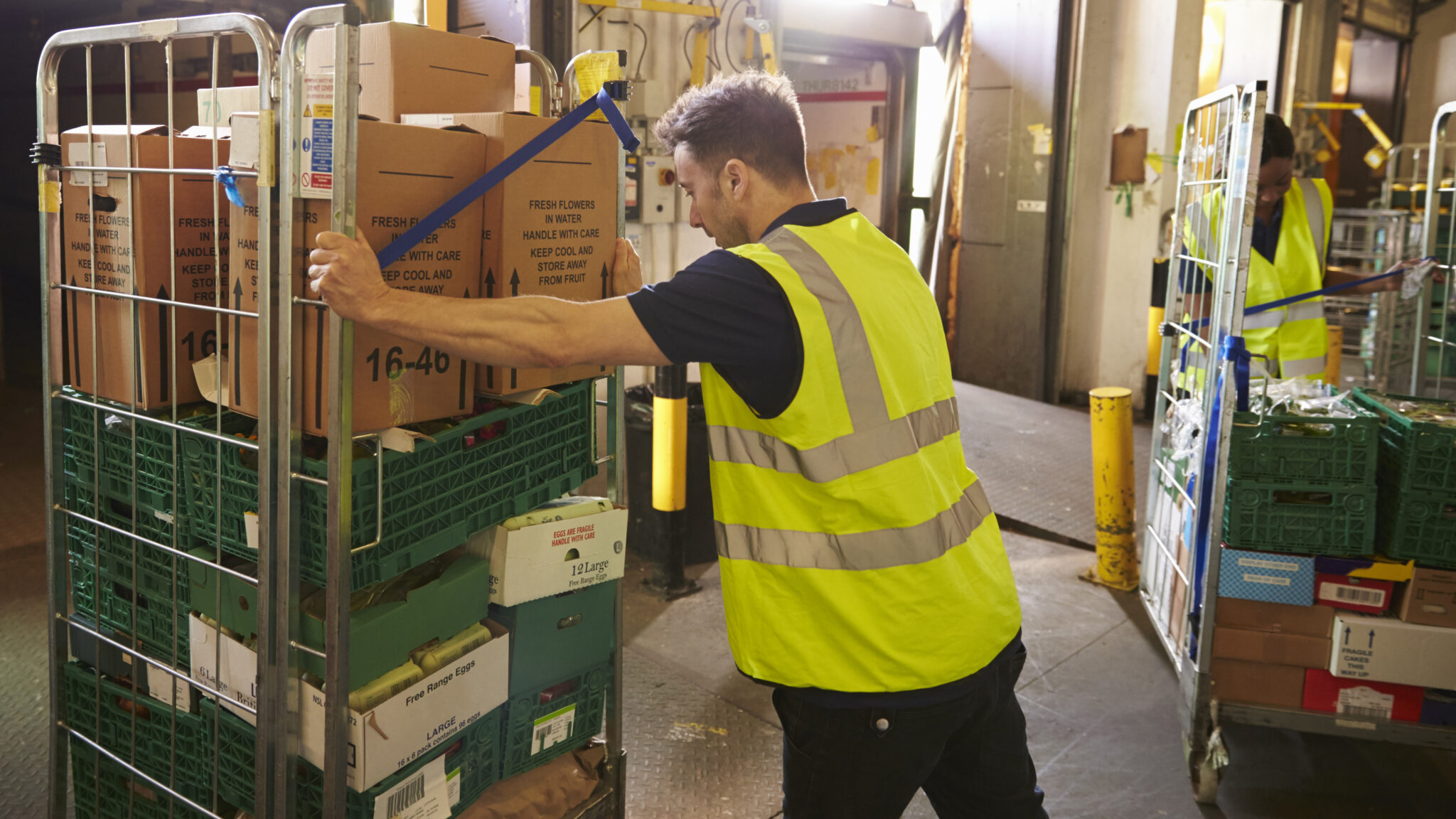Most people, who work in a store, must handle various types of waste on a daily basis. Boxes and other corrugated cardboard wrappings make up the majority of waste within the retail and grocery sectors. Few people give thought to the fact that such work can result in occupational injury and even an increased safety risk for store staff, not to mention stress. In this article we look at issues relating to the work environment in the storage areas of stores and how these can be addressed.
Risks of in-store waste management
Boxes are bulky, which is a common problem for stores, and if not compacted, the boxes take up too much space both in the warehouse and in dumpsters. If dumpsters are filled quickly, the waste needs to be collected more frequently. This means an increased transport frequency and hence increased costs. Consequently, the retailer or store manager is paying for air to be taken away.
One way to minimize transport costs is to make the waste less bulky by cutting and folding the boxes. There are several risks associated with this type of activity from a work environment perspective. We have summarized the most common in the list below:
- Cuts caused when staff cut up the boxes.
- Repetitive strain injury: Repeatedly picking up and stacking cartons on pallets and in cages puts strain on the back and knees.
- Fire hazard: Stacking empty cartons in a pile in the warehouse poses several different fire hazards. Corrugated cardboard is highly flammable, which can make it easier for a potential fire to take hold and spread. In addition, piles of cardboard waste can block emergency exits that need to be used in the event of a fire.
- Stress: Having to spend much of your working day handling and disposing of waste from the warehouse can also contribute to stress. Those who work in stores know only too well that this time would be better spent helping customers and colleagues on the shop floor. Lines at the checkout are growing and the shelves have to be replenished, but instead of being able to help out in the store, you are stuck in the warehouse taking care of waste.
Let machines take care of the waste
Many stores in the grocery sector now use effective tools in the form of compaction equipment that assists and lightens the load for staff when it comes to waste management. The life expectancy of this equipment is long, so if your equipment is old, it may be a good idea to review your solution to see if it might be time for an upgrade. In recent years, several new technologies have been developed that further improve already effective solutions. Balers and compactors are more or less standard in most major grocery chains, but many retailers still use old waste management methods that have an adverse effect on their staff’s work environment.
Stores that have invested in a baler or compactor can minimize their work environment-related risks. Store staff throw corrugated cardboard into an infeed aperture placed at a height of about 110-120 cm above the ground. This means they work in an upright position, avoiding injury to the back and knees. The material does not need to be cut or folded. The boxes are thrown in whole, which eliminates the risk of the staff accidentally cutting themselves. Furthermore, stress levels are lower as less of their working day is spent handling waste.
Fire risks are also reduced as the boxes are fed directly into a steel-walled container. In the event that a fire does break out, the risk of it spreading is minimized. The machines are CE-marked. This is a product label indicating that the product complies with the EU’s fundamental requirements relating to health, safety, functionality, and the environment.






